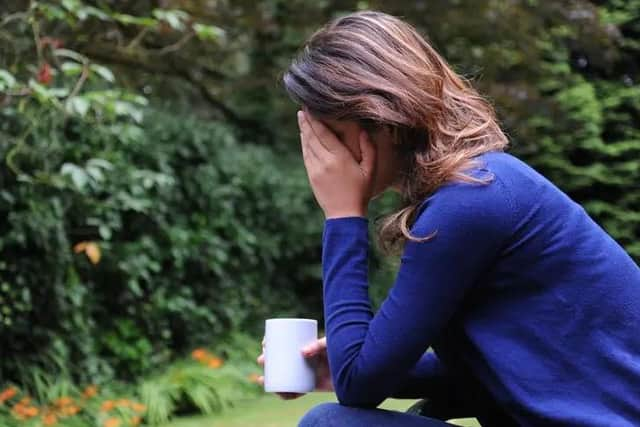Tens of thousands of people in Northamptonshire estimated to have long Covid, according to NHS England figures
and live on Freeview channel 276
NHS England estimates show tens of thousands of people in Northamptonshire are likely to be suffering with long Covid — and many won’t even know it.
The news comes as new research added hair loss and sexual dysfunction to the list of likely long Covid symptoms
Advertisement
Hide AdAdvertisement
Hide AdCharity Long Covid SOS called on the government to stop putting its “head in the sand” and take action to reduce the growing number of long Covid sufferers.
The annual GP Patient Survey polled patients in thousands of practices across England between January and April on various aspects of their health – including 68 in the NHS Northamptonshire CCG area.
Patients were asked if they were still experiencing symptoms more than 12 weeks after they first had Covid-19, that could not be explained by something else.
Of the 9,104 respondents in Northamptonshire, 398 said they had symptoms of long Covid.
Advertisement
Hide AdAdvertisement
Hide AdApplying this rate to the latest population estimate for the CCG area as a whole means 25,857 people aged 16 and over in the area could be suffering from lingering health problems.


Across England, 4.4 percent of GP patients said they had long Covid symptoms around two million people.
New research by University of Birmingham published on Monday (July 25), based on anonymous health records of 2.4 million people in the UK, showed fatigue continues to be the most common symptom followed by shortness of breath, a cough and muscle ache.
But it also found a range of other symptoms including hair loss, amnesia, incontinence, erectile dysfunction and hallucinations.
Advertisement
Hide AdAdvertisement
Hide AdLong Covid SOS said this rate is higher than estimates by the Office for National Statistics but it is possible that many may not be aware that they have it at all.
Ondine Sherwood, co-founder of the charity, said most sufferers are unable to obtain any meaningful treatment with lengthy waiting lists.
She added: “The government needs to acknowledge that this is a major issue impacting a significant proportion of the population and that it will lead to a massive burden of ill health on the NHS, on society and the economy.
“The government needs to stop putting its head in the sand and start to act.”
Advertisement
Hide AdAdvertisement
Hide AdShe said stricter infection control measures, more healthcare investment and increased research funding are needed.
The Royal College of GPs said post-Covid syndrome is still a relatively new condition but the prolonged health effects that some experience can have a terrible impact on their lives.
Professor Martin Marshall, chairman of the RCGP, said more resources are needed, including good access to appropriate rehabilitation services in the local community, and more staff working in general practice.
He is calling on the Government to address the “intense workforce shortages” and help deliver care to the increasing number of patients with long Covid.
Advertisement
Hide AdAdvertisement
Hide AdThe Department of Health and Social Care said more than £50 million has gone to help scientists understand the virus's long-term debilitating effects, while the NHS has committed £224 million to support people with ongoing symptoms.
A spokesman added: “The best way to protect yourself from Covid is by getting the vaccine, and our world-leading programme has delivered over 150 million jabs.”
